
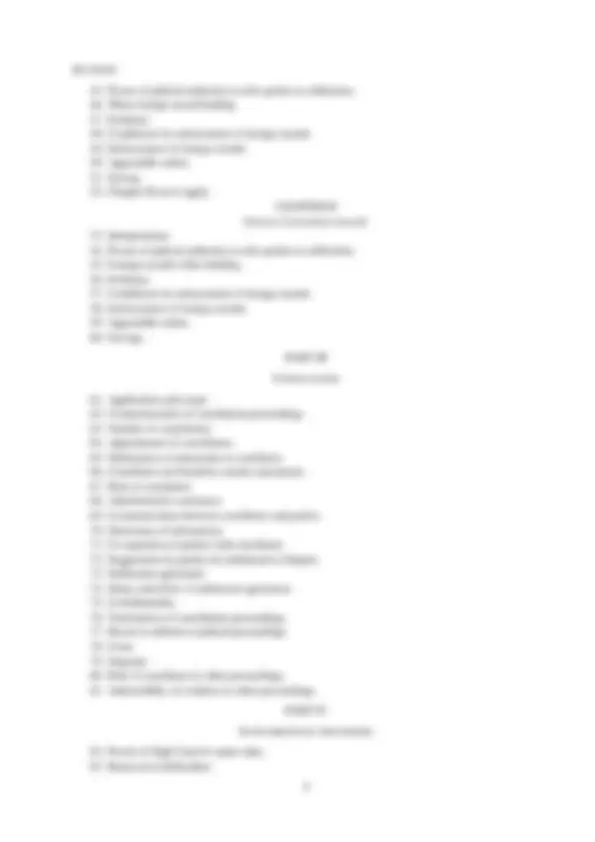

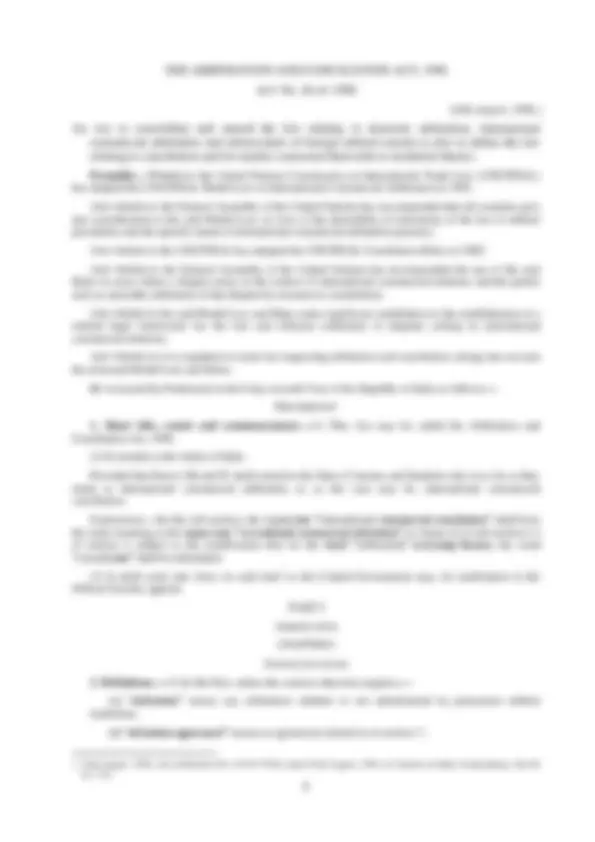
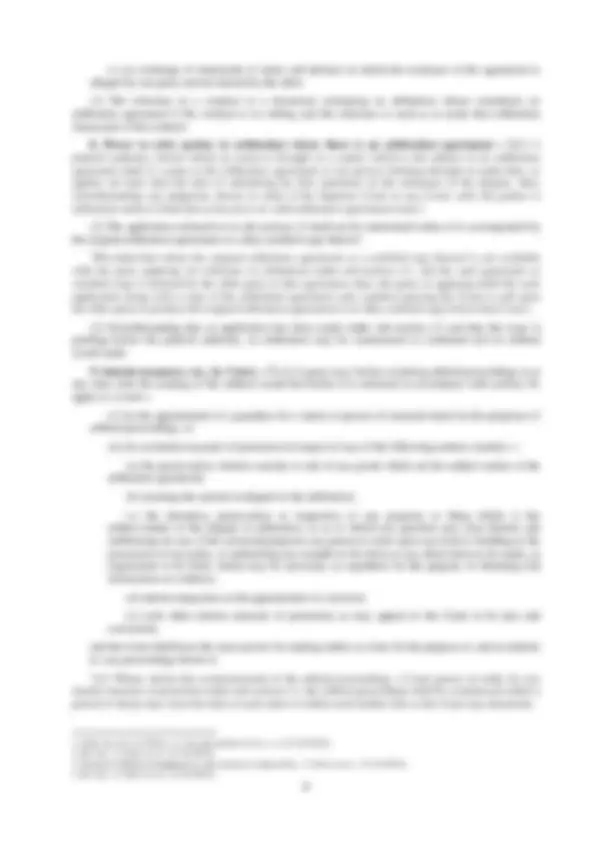
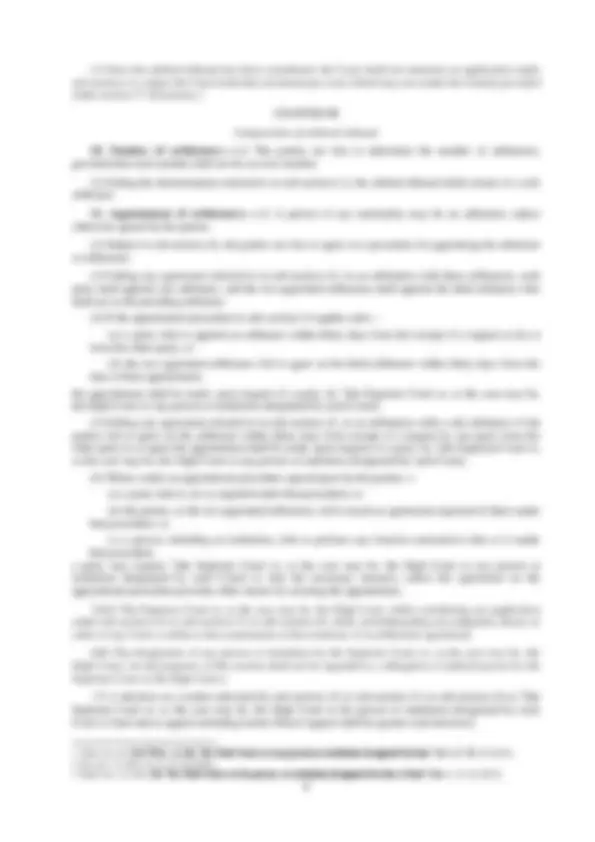
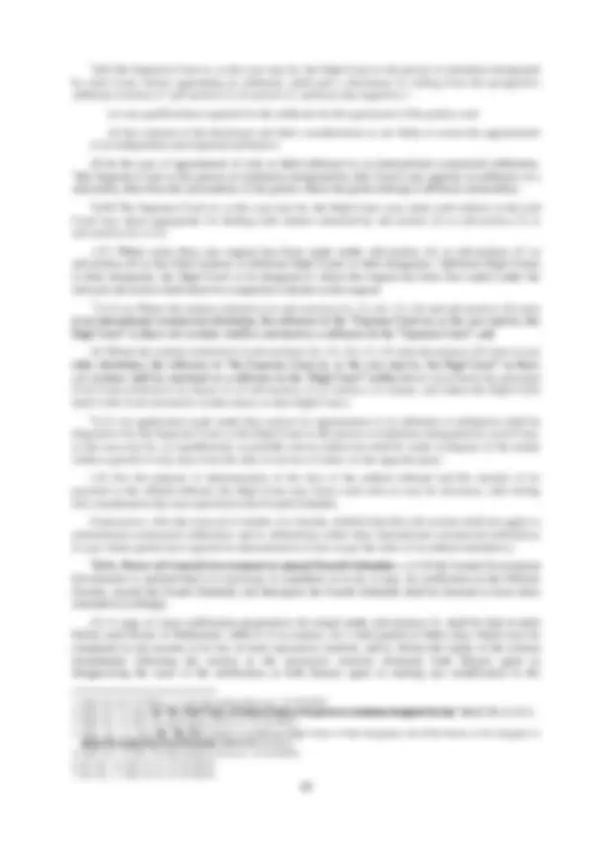
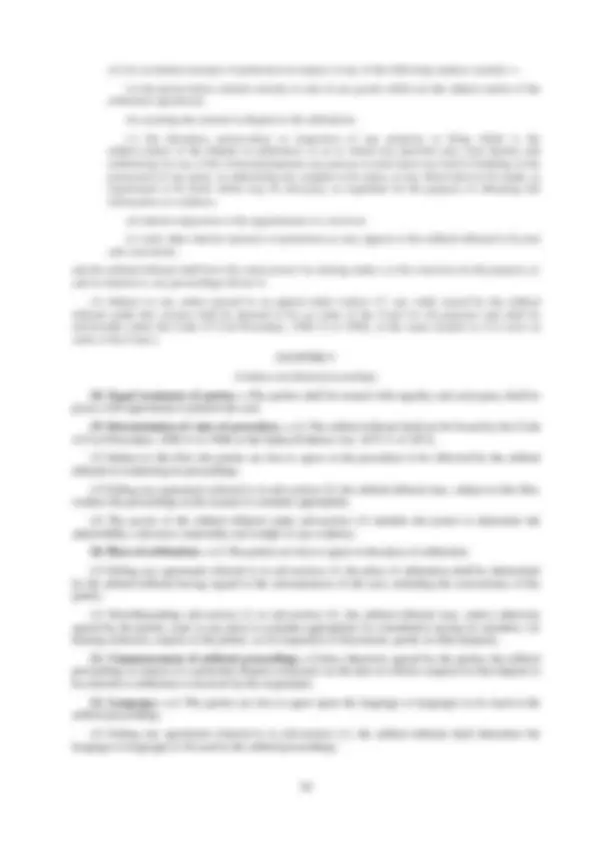
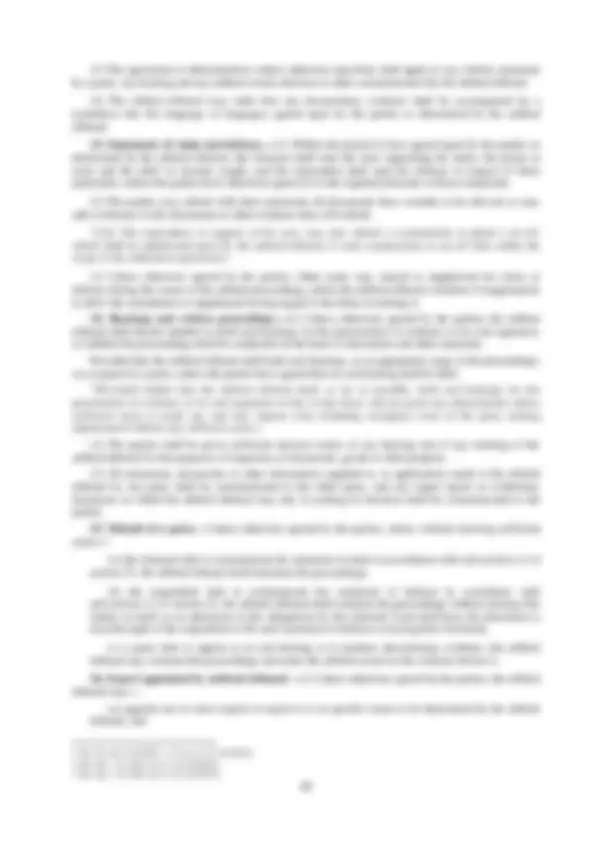
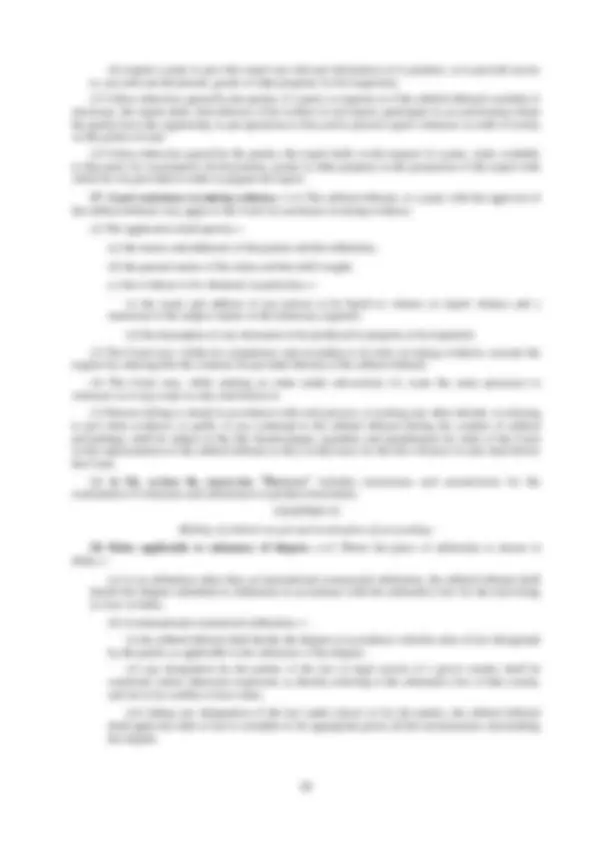
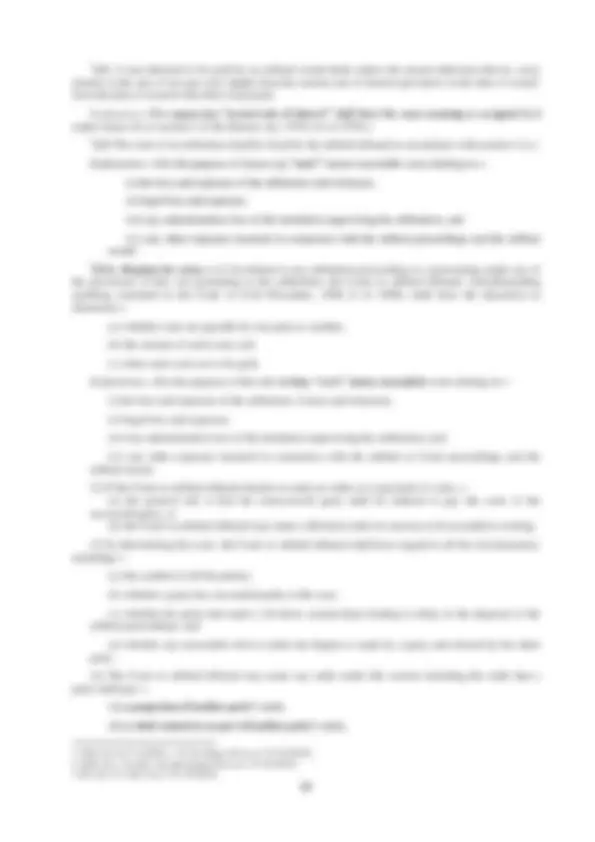
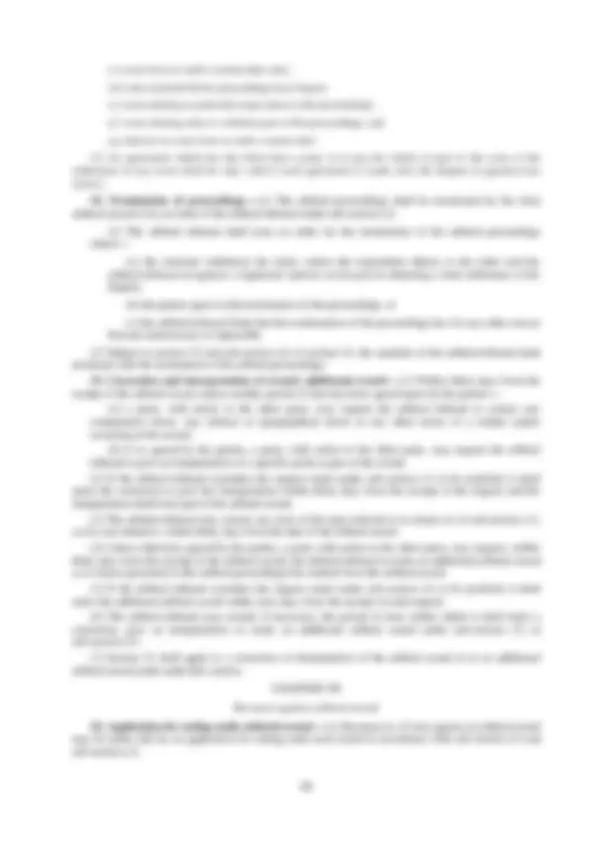

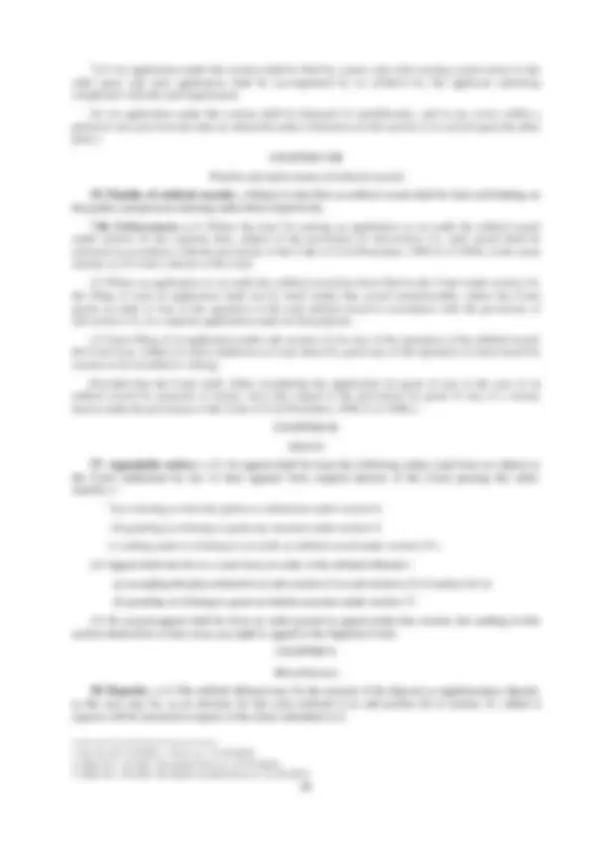
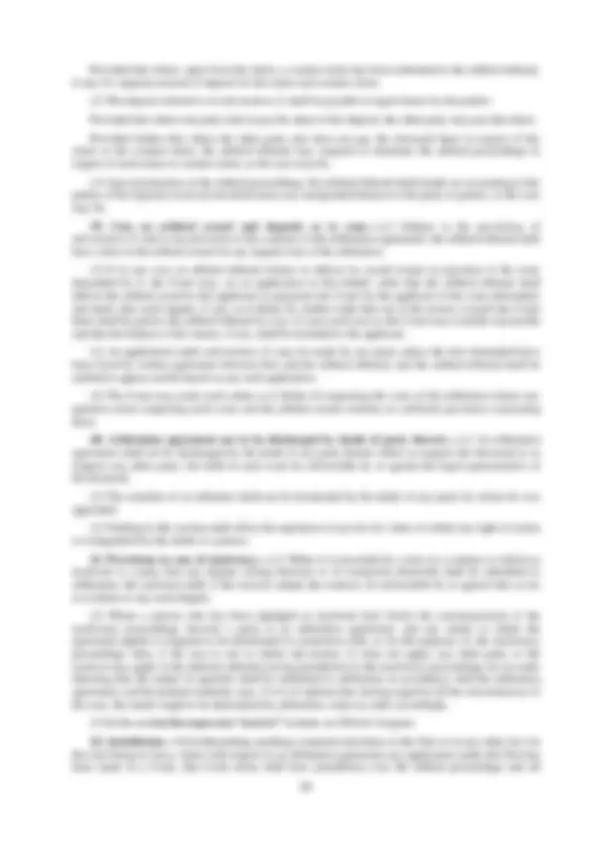
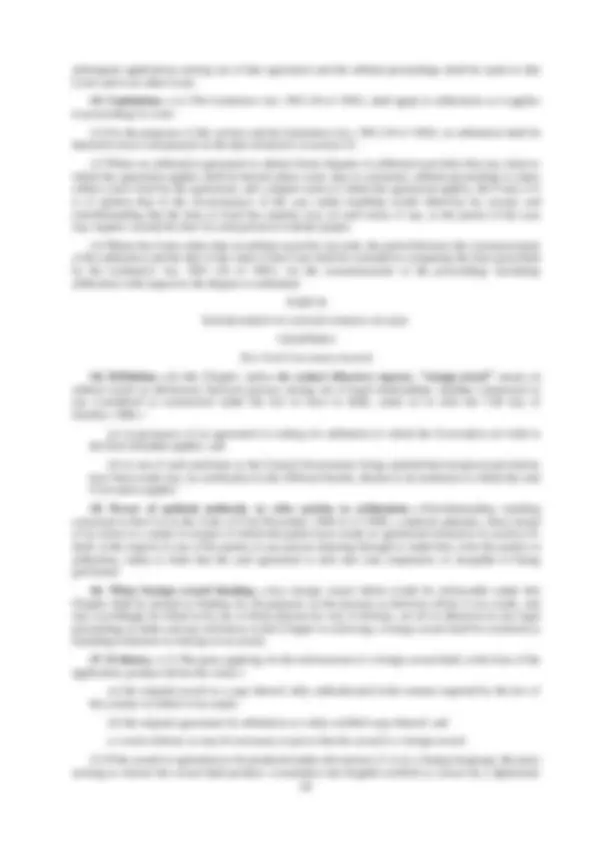
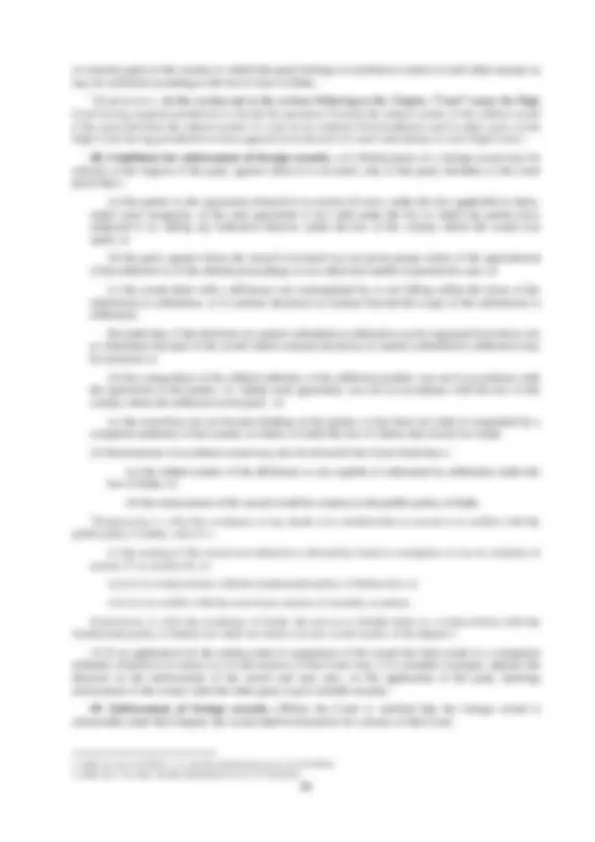
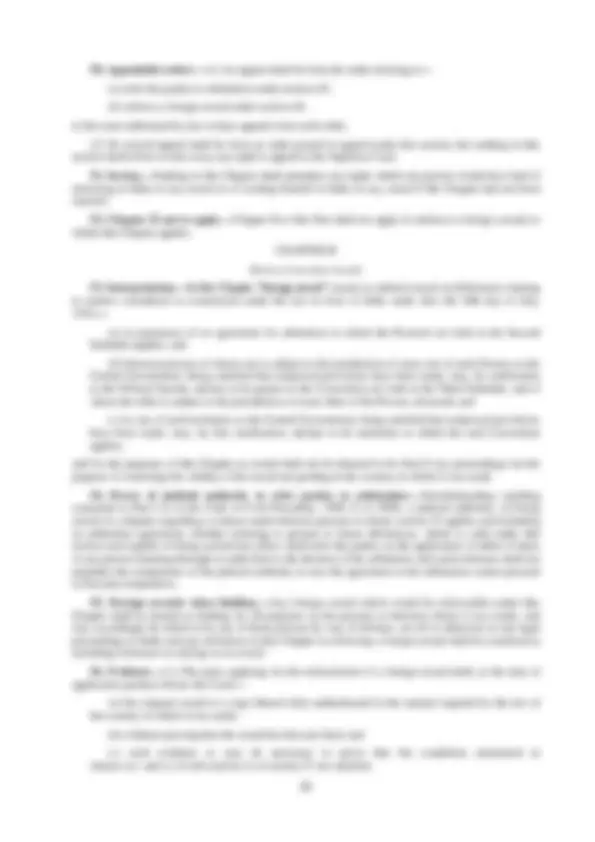
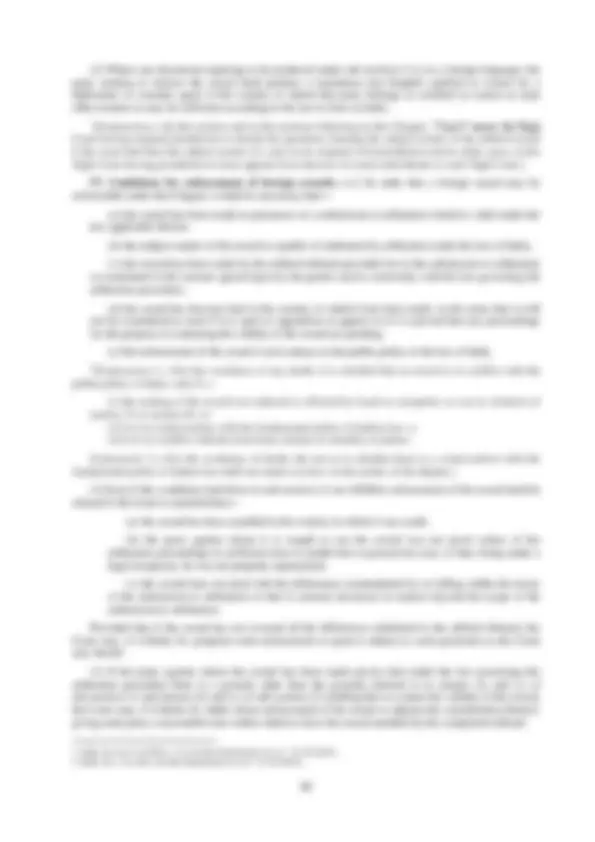
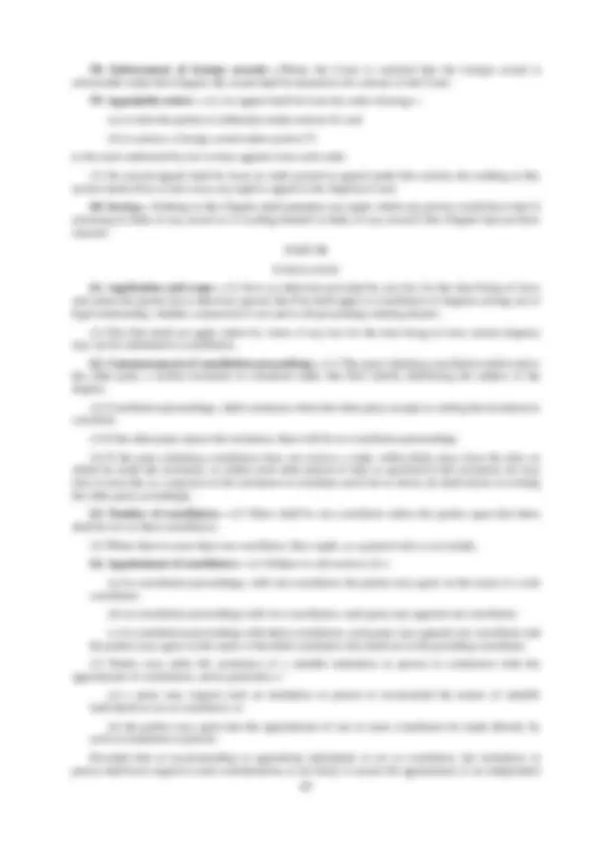
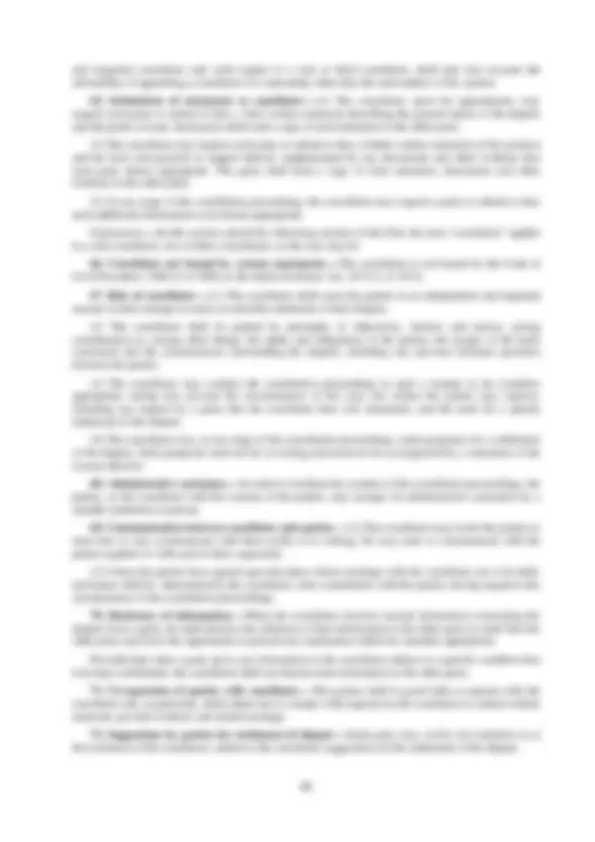
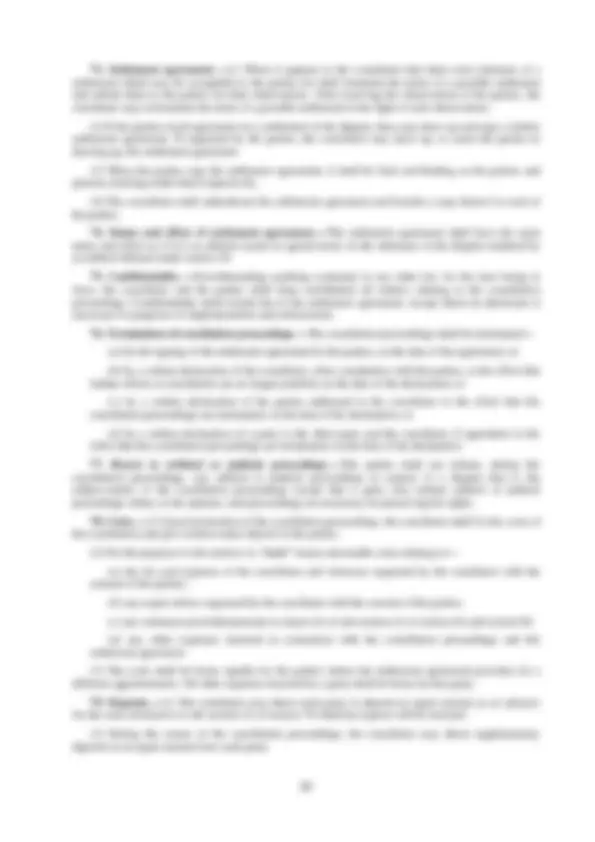
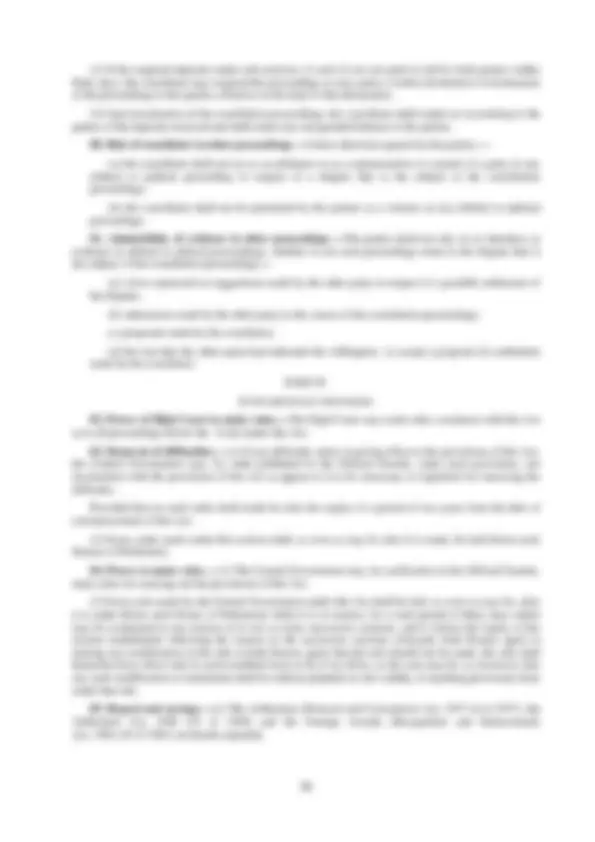

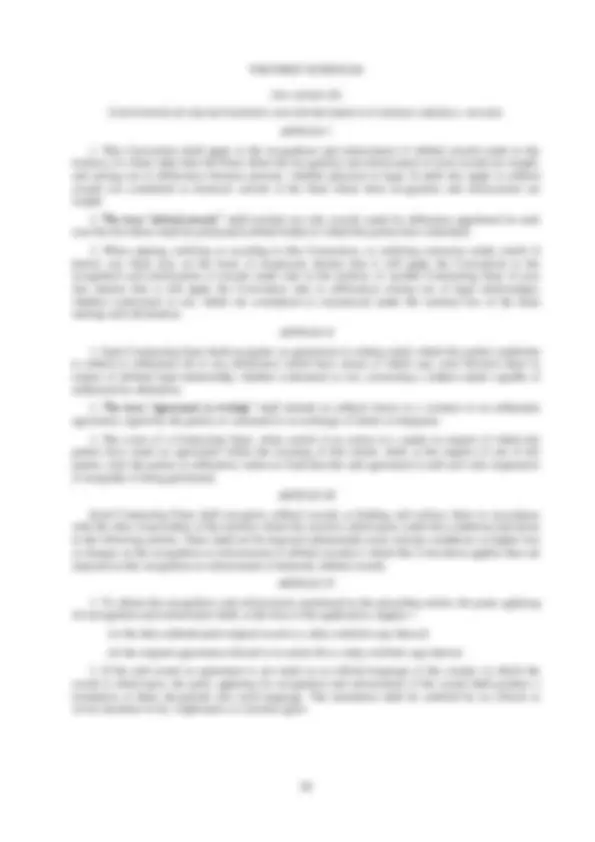
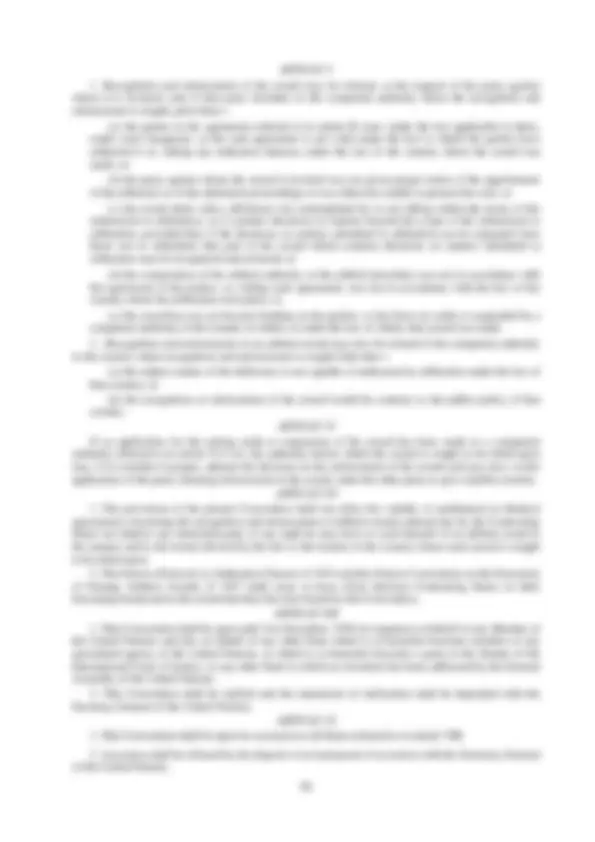
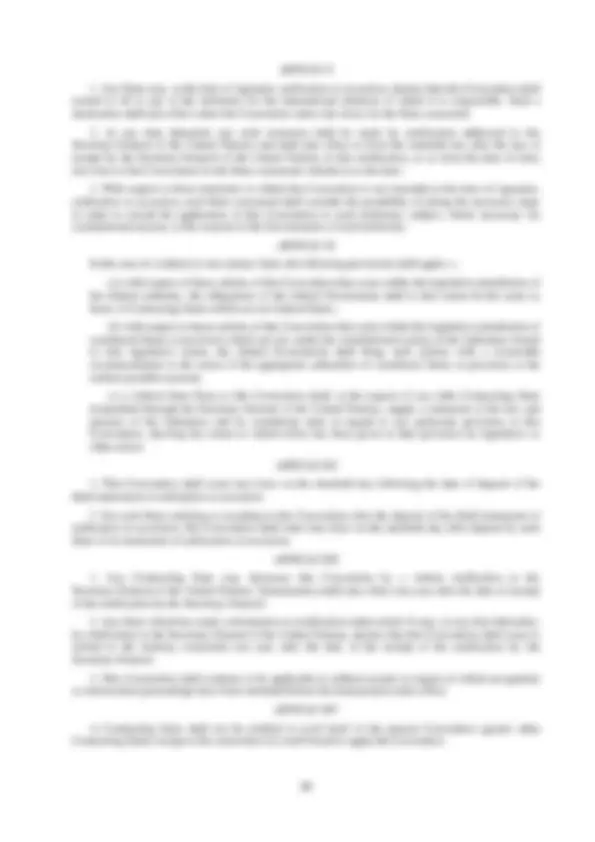
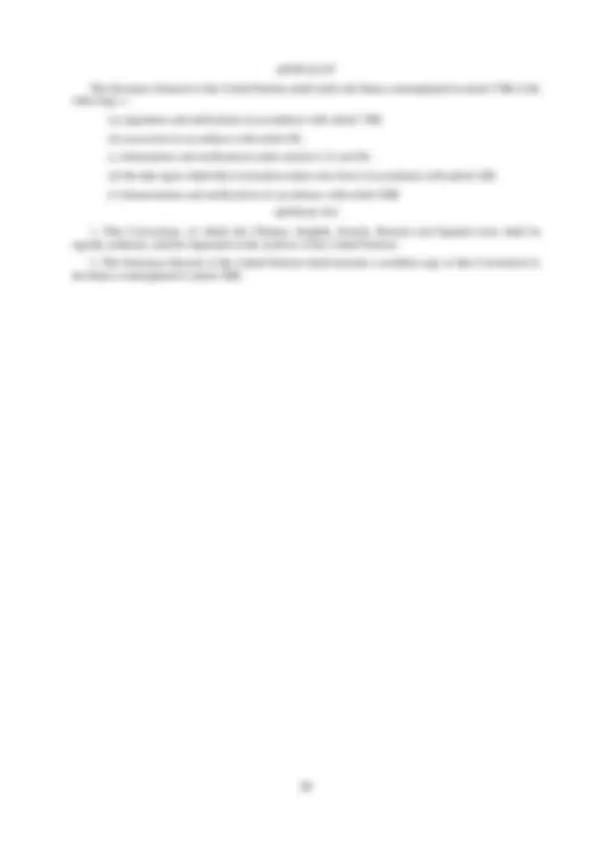
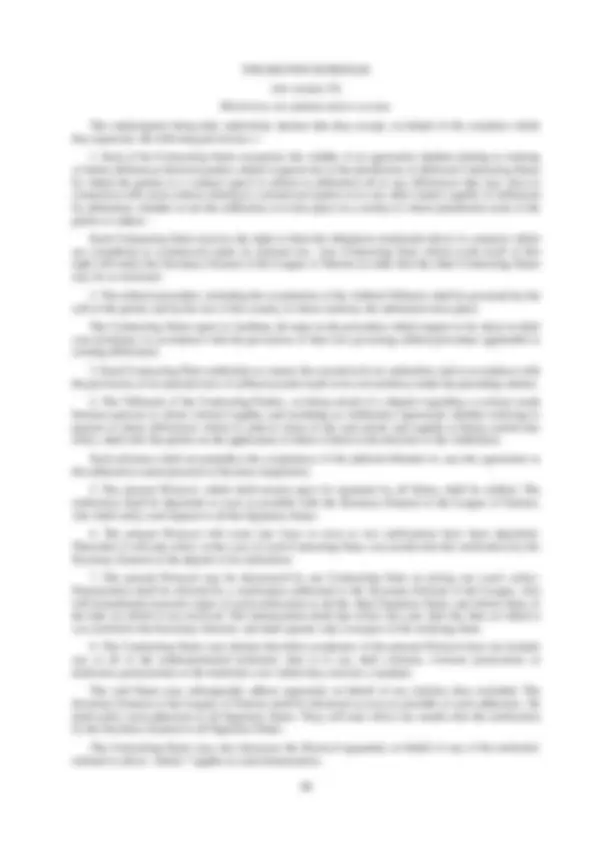
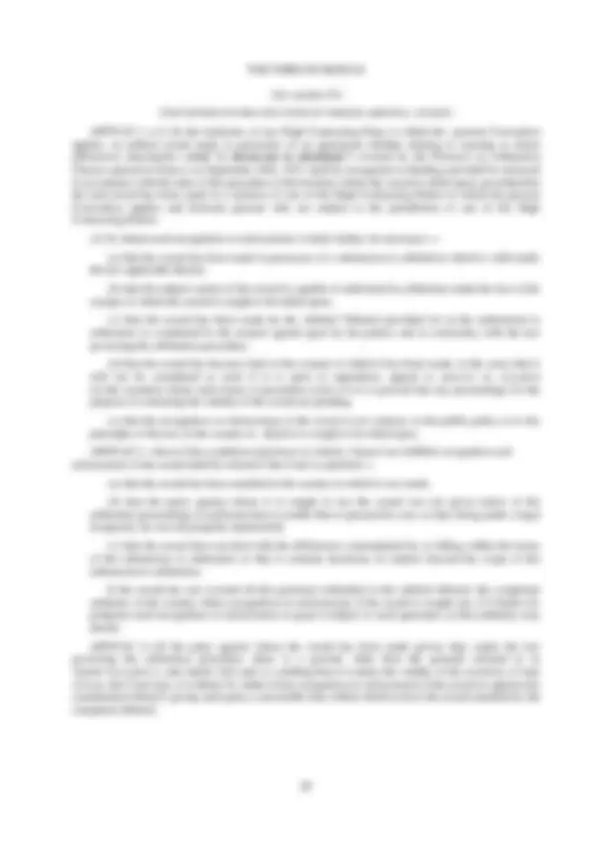
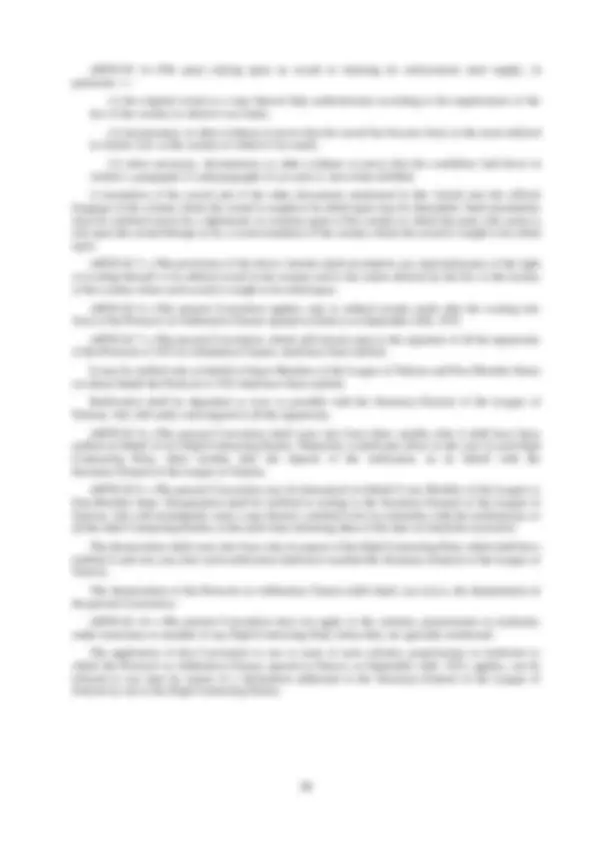

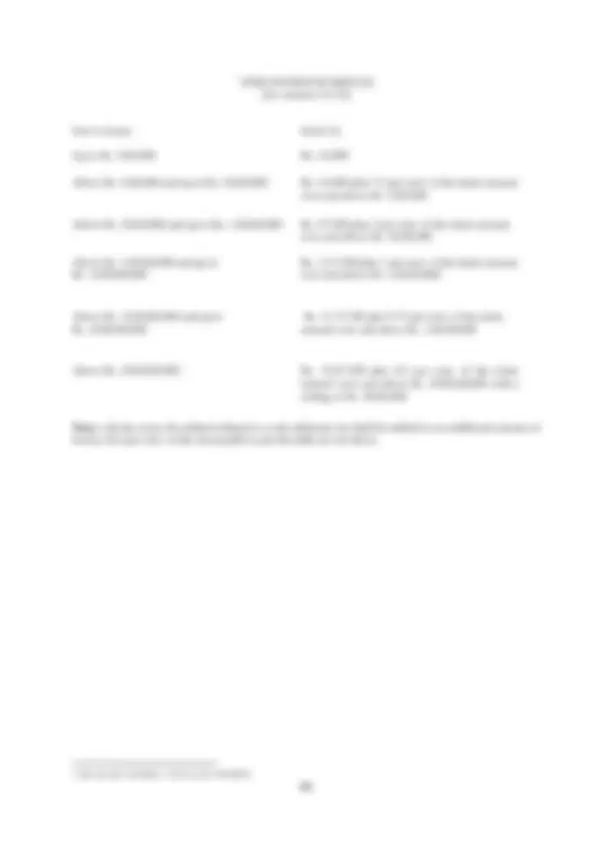
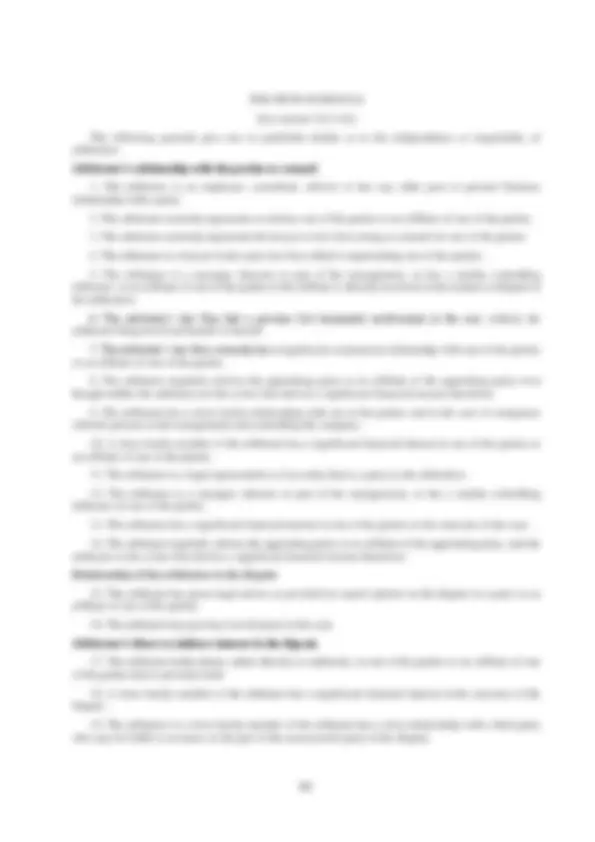
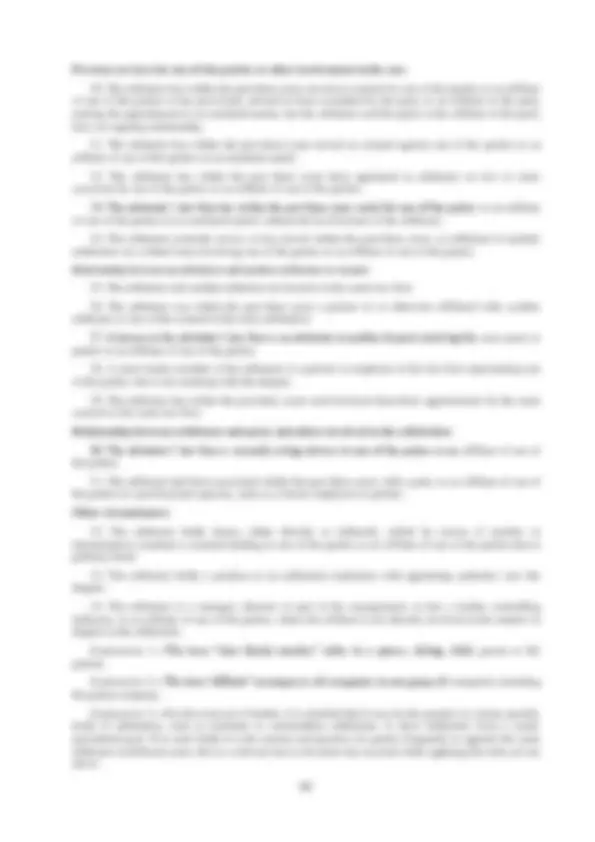

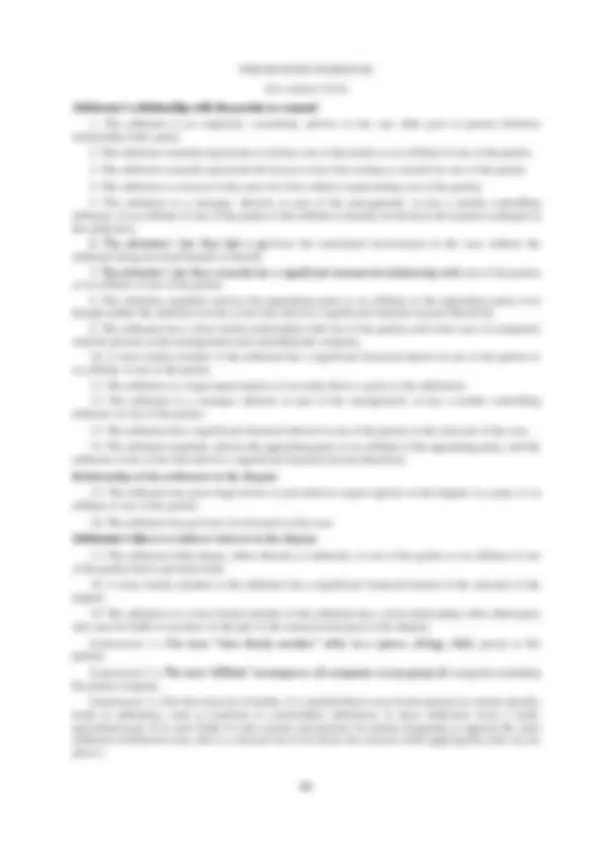
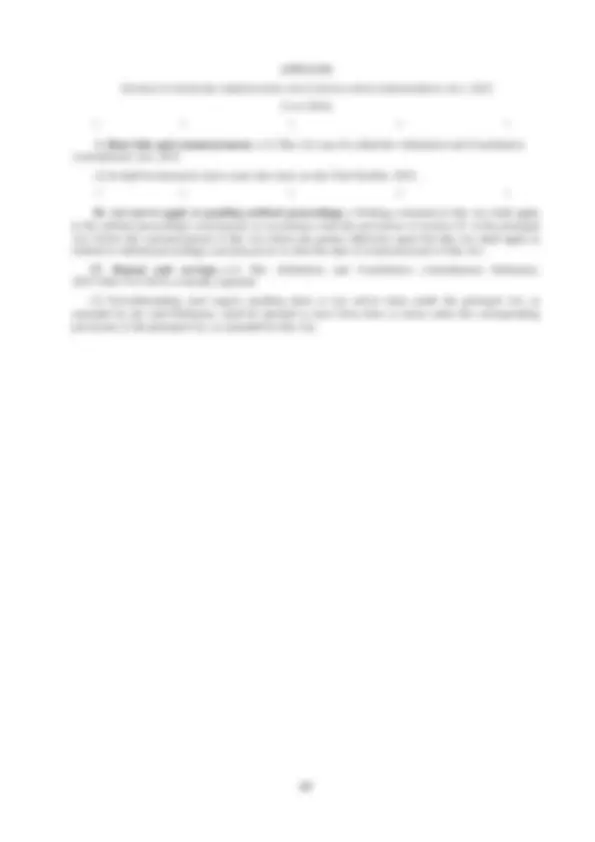
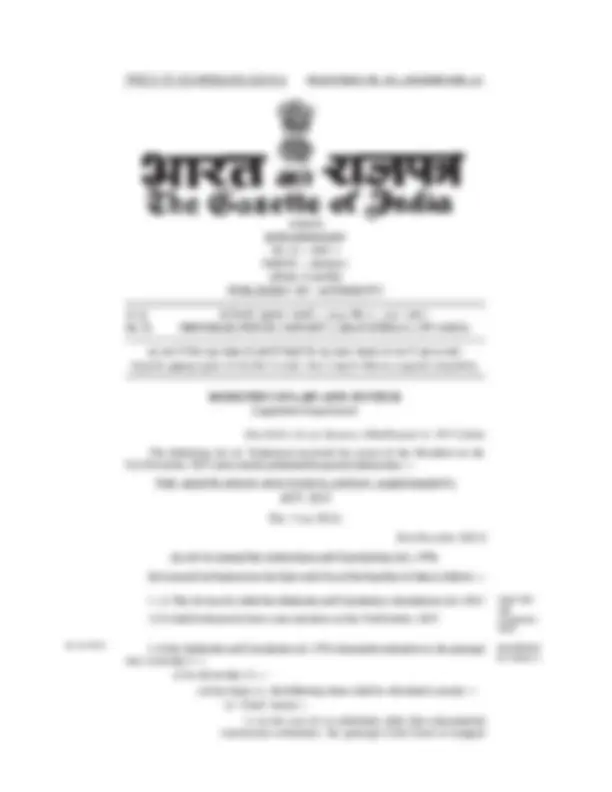

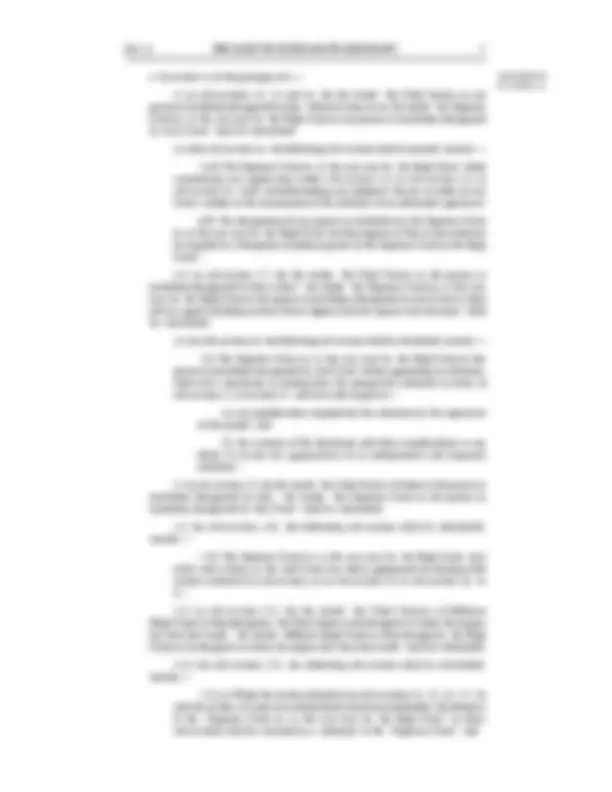
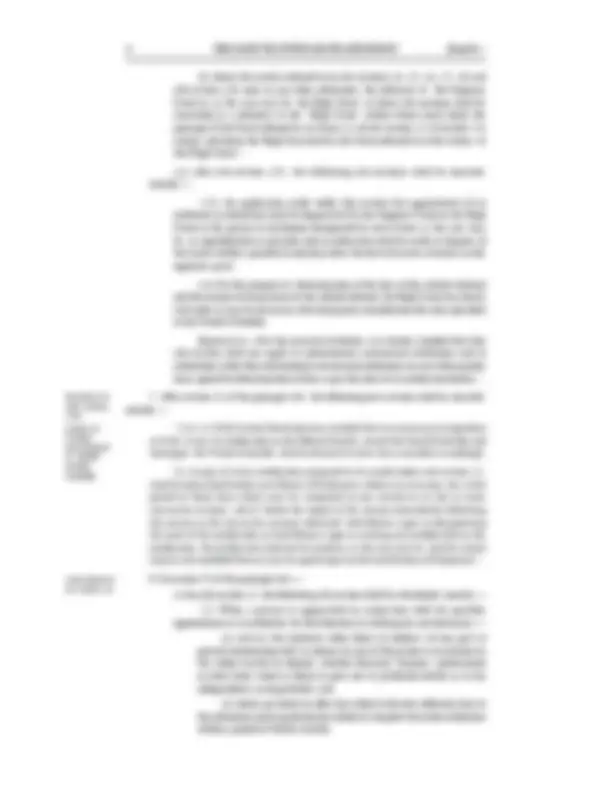
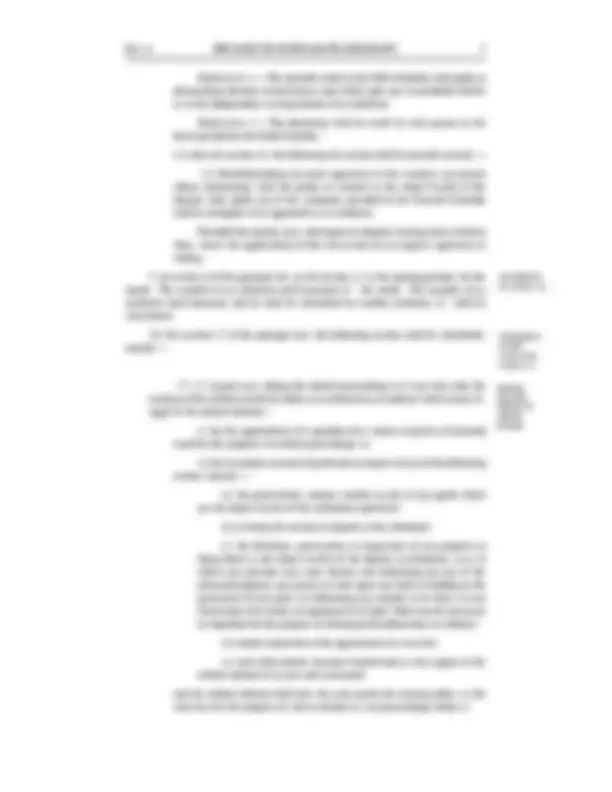
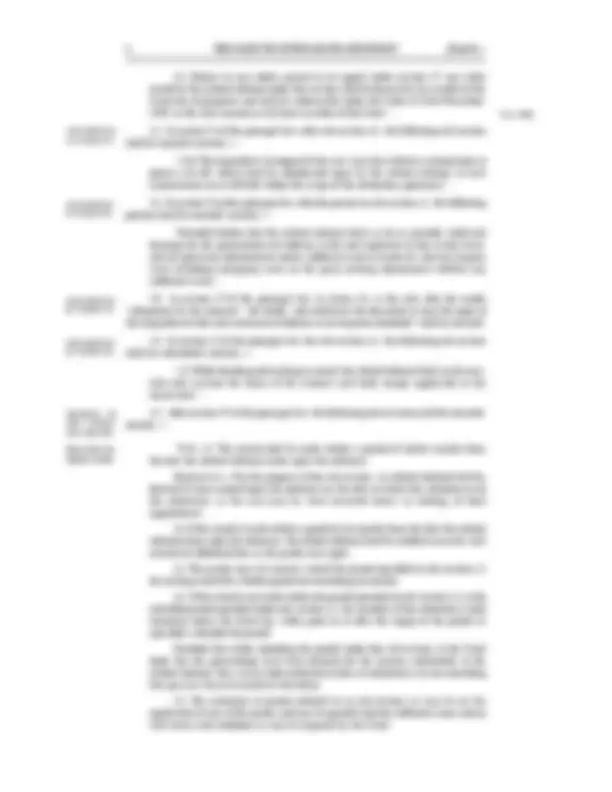
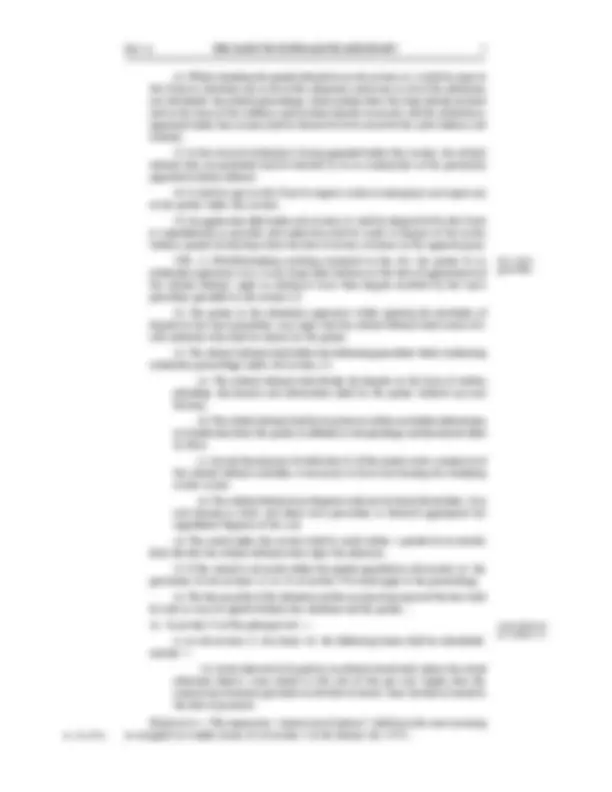
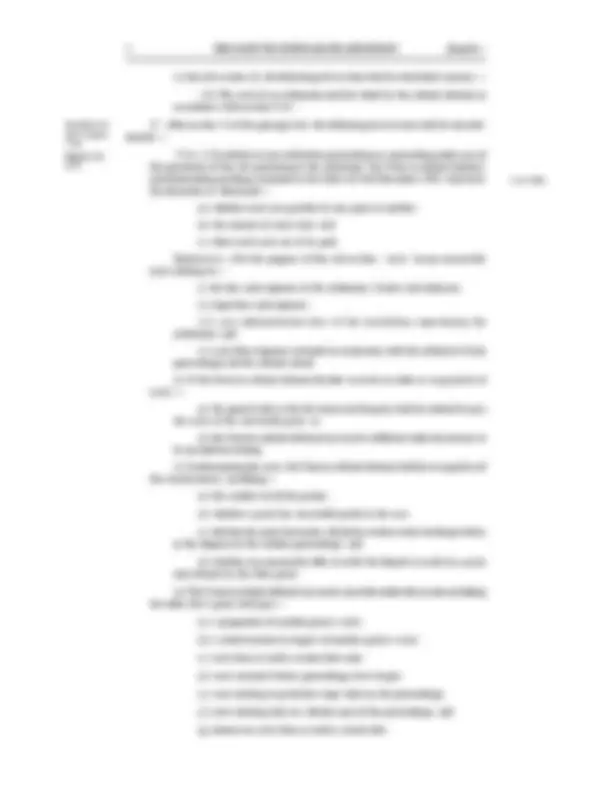
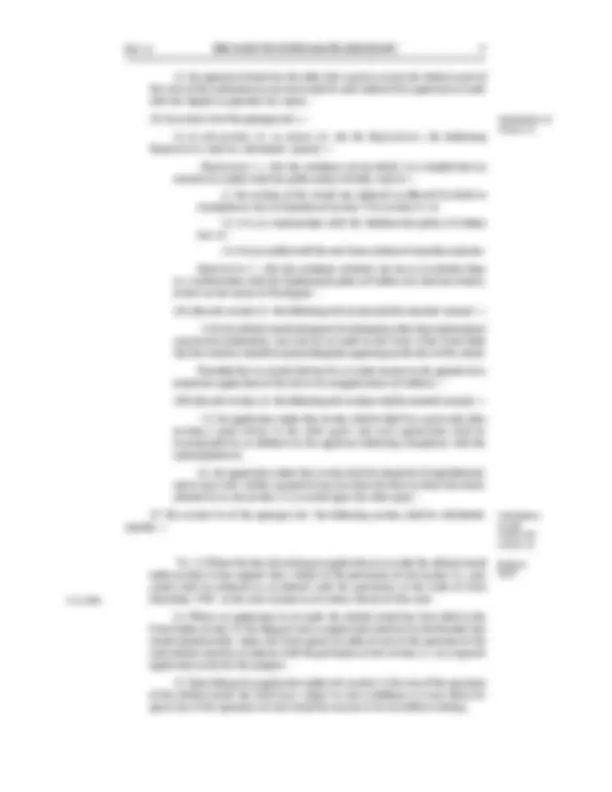
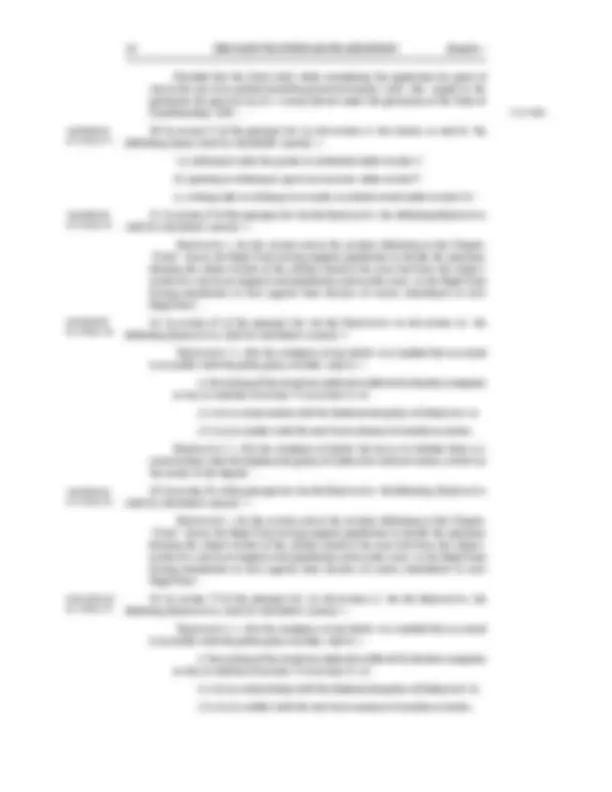
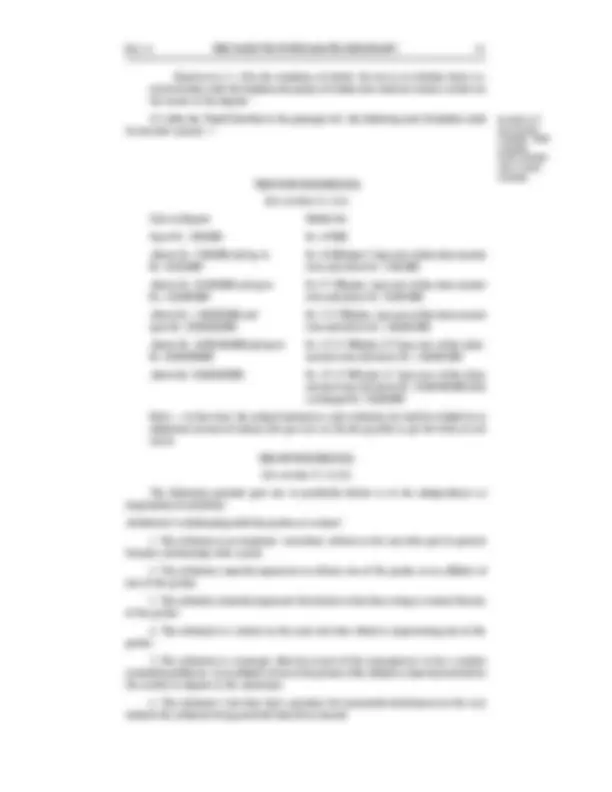
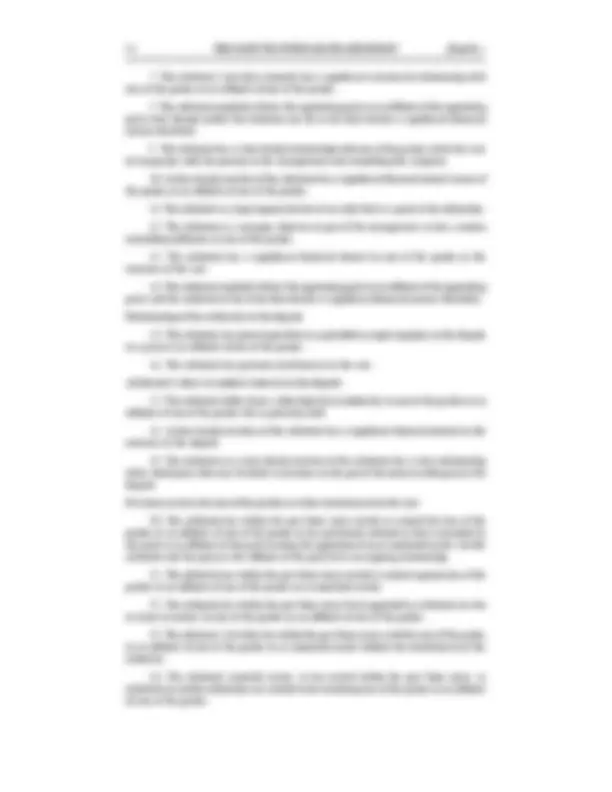
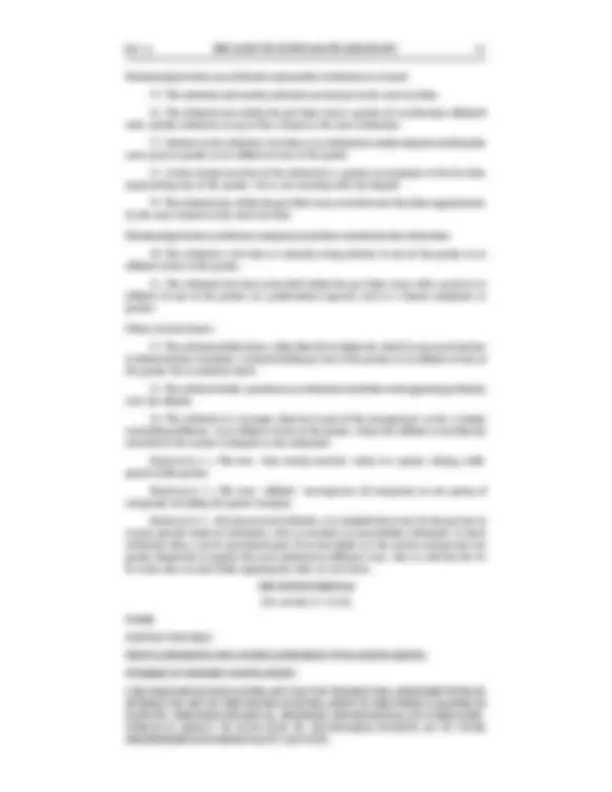
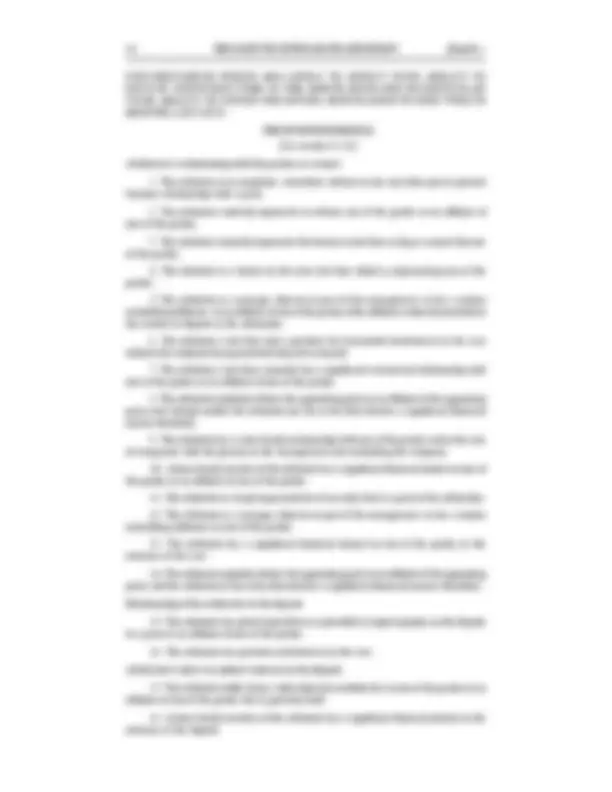
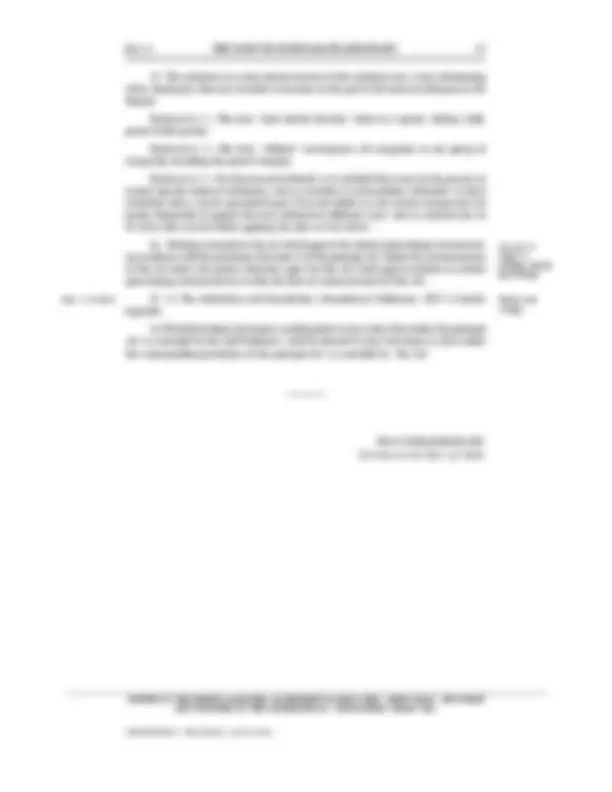


Study with the several resources on Docsity

Earn points by helping other students or get them with a premium plan


Prepare for your exams
Study with the several resources on Docsity

Earn points to download
Earn points by helping other students or get them with a premium plan
Community
Ask the community for help and clear up your study doubts
Discover the best universities in your country according to Docsity users
Free resources
Download our free guides on studying techniques, anxiety management strategies, and thesis advice from Docsity tutors
An overview of the arbitration and conciliation act, 2015, which is an act of the parliament of india that regulates domestic and international arbitration and conciliation in india. The act defines key terms such as "arbitral award", "arbitral tribunal", "court", and "international commercial arbitration". It also outlines the appointment of arbitrators, the jurisdiction of courts, and the enforcement of arbitral awards. Important sections of the act, including sections 2, 9, 11, 27, and 37, which outline the scope and application of the act, the role of courts in arbitration proceedings, and the enforcement of arbitral awards. This document could be useful for students, researchers, and legal professionals interested in understanding the legal framework for arbitration and conciliation in india.
Typology: Cheat Sheet
1 / 60

This page cannot be seen from the preview
Don't miss anything!





















































PART I
ARBITRATION
CHAPTER I
General provisions
CHAPTER II Arbitration agreement
CHAPTER III
Composition of arbitral tribunal
CHAPTER IV
Jurisdiction of arbitral tribunals
CHAPTER V
Conduct of arbitral proceedings
CHAPTER VI
Making of arbitral award and termination of proceedings
CHAPTER VII
Recourse against arbitral award
CHAPTER VIII
Finality and enforcement of arbitral awards
CHAPTER IX
Appeals
CHAPTER X
Miscellaneous
[16 th Augus t, 1996.]
Preamble.— WHEREAS the United Nations Commission on International Trade Law (UNCITRAL) has adopted the UNCITRAL Model Law on International Commercial Arbitration in 1985;
AND WHEREAS the General Assembly of the United Nations has recommended that all countries give due consideration to the said Model Law, in view of the desirability of uniformity of the law of arbitral procedures and the specific needs of international commercial arbitration practice;
AND WHEREAS the UNCITRAL has adopted the UNCITRAL Conciliation Rules in 1980; AND WHEREAS the General Assembly of the United Nations has recommended the use of the said Rules in cases where a dispute arises in the context of international commercial relations and the parties seek an amicable settlement of that dispute by recourse to conciliation;
AND WHEREAS the said Model Law and Rules make significant contribution to the establishment of a unified legal framework for the fair and efficient settlement of disputes arising in international commercial relations;
AND WHEREAS it is expedient to make law respecting arbitration and conciliation, taking into account the aforesaid Model Law and Rules;
BE it enacted by Parliament in the Forty-seventh Year of the Republic of India as follows: — PRELIMINARY
1. Short title, extent and commencement.— ( 1 ) This Act may be called the Arbitration and Conciliation Act, 1996.
( 2 ) It extends to the whole of India: Provided that Parts I, III and IV shall extend to the State of Jammu and Kashmir only in so far as they relate to international commercial arbitration or, as the case may be, international commercial conciliation.
Explanation. — In this sub-section, the expression “international commercial conciliation” shall have the same meaning as the expression “international commercial arbitration” in clause ( f ) of sub-section ( 1 ) of section 2, subject to the modification that for the word “arbitration” occurring therein, the word “conciliation” shall be substituted.
( 3 ) It shall come into force on such date^1 as the Central Government may, by notification in the Official Gazette, appoint.
PART I ARBITRATION CHAPTER I General provisions
2. Definitions.— ( 1 ) In this Part, unless the context otherwise requires, — ( a ) “arbitration” means any arbitration whether or not administered by permanent arbitral institution; ( b ) “arbitration agreement” means an agreement referred to in section 7;
( 7 ) An arbitral award made under this Part shall be considered as a domestic award. ( 8 ) Where this Part — ( a ) refers to the fact that the parties have agreed or that they may agree, or ( b ) in any other way refers to an agreement of the parties,
that agreement shall include any arbitration rules referred to in that agreement.
( 9 ) Where this Part, other than clause ( a ) of section 25 or clause ( a ) of sub-section ( 2 ) of section 32, refers to a claim, it shall also apply to a counterclaim, and where it refers to a defence, it shall also apply to a defence to that counterclaim.
3. Receipt of written communications. — ( 1 ) Unless otherwise agreed by the parties, — ( a ) any written communication is deemed to have been received if it is delivered to the addressee personally or at his place of business, habitual residence or mailing address, and ( b ) if none of the places referred to in clause ( a ) can be found after making a reasonable inquiry, a written communication is deemed to have been received if it is sent to the addressee's last known place of business, habitual residence or mailing address by registered letter or by any other means which provides a record of the attempt to deliver it. ( 2 ) The communication is deemed to have been received on the day it is so delivered. ( 3 ) This section does not apply to written communications in respect of proceedings of any judicial authority. 4. Waiver of right to object.— A party who knows that — ( a ) any provision of this Part from which the parties may derogate, or ( b ) any requirement under the arbitration agreement,
has not been complied with and yet proceeds with the arbitration without stating his objection to such non-compliance without undue delay or, if a time limit is provided for stating that objection, within that period of time, shall be deemed to have waived his right to so object.
5. Extent of judicial intervention. — Notwithstanding anything contained in any other law for the time being in force, in matters governed by this Part, no judicial authority shall intervene except where so provided in this Part. 6. Administrative assistance.— In order to facilitate the conduct of the arbitral proceedings, the parties, or the arbitral tribunal with the consent of the parties, may arrange for administrative assistance by a suitable institution or person.
CHAPTER II Arbitration agreement
7. Arbitration agreement. — ( 1 ) In this Part, “arbitration agreement” means an agreement by the parties to submit to arbitration all or certain disputes which have arisen or which may arise between them in respect of a defined legal relationship, whether contractual or not.
( 2 ) An arbitration agreement may be in the form of an arbitration clause in a contract or in the form of a separate agreement.
( 3 ) An arbitration agreement shall be in writing. ( 4 ) An arbitration agreement is in writing if it is contained in — ( a ) a document signed by the parties; ( b ) an exchange of letters, telex, telegrams or other means of telecommunication 1 [including communication through electronic means] which provide a record of the agreement; or
( c ) an exchange of statements of claim and defence in which the existence of the agreement is alleged by one party and not denied by the other. ( 5 ) The reference in a contract to a document containing an arbitration clause constitutes an arbitration agreement if the contract is in writing and the reference is such as to make that arbitration clause part of the contract.
8. Power to refer parties to arbitration where there is an arbitration agreement. —^1 [ ( 1 ) A judicial authority, before which an action is brought in a matter which is the subject of an arbitration agreement shall, if a party to the arbitration agreement or any person claiming through or under him, so applies not later than the date of submitting his first statement on the substance of the dispute, then, notwithstanding any judgment, decree or order of the Supreme Court or any Court, refer the parties to arbitration unless it finds that prima facie no valid arbitration agreement exists.]
( 2 ) The application referred to in sub-section ( 1 ) shall not be entertained unless it is accompanied by the original arbitration agreement or a duly certified copy thereof: (^2) [Provided that where the original arbitration agreement or a certified copy thereof is not available
with the party applying for reference to arbitration under sub-section ( 1 ), and the said agreement or certified copy is retained by the other party to that agreement, then, the party so applying shall file such application along with a copy of the arbitration agreement and a petition praying the Court to call upon the other party to produce the original arbitration agreement or its duly certified copy before that Court.]
( 3 ) Notwithstanding that an application has been made under sub-section ( 1 ) and that the issue is pending before the judicial authority, an arbitration may be commenced or continued and an arbitral award made.
9. Interim measures, etc., by Court.—^3 [( 1 )] A party may, before or during arbitral proceedings or at any time after the making of the arbitral award but before it is enforced in accordance with section 36, apply to a court —
( i ) for the appointment of a guardian for a minor or person of unsound mind for the purposes of arbitral proceedings; or ( ii ) for an interim measure of protection in respect of any of the following matters, namely: — ( a ) the preservation, interim custody or sale of any goods which are the subject-matter of the arbitration agreement; ( b ) securing the amount in dispute in the arbitration; ( c ) the detention, preservation or inspection of any property or thing which is the subject-matter of the dispute in arbitration, or as to which any question may arise therein and authorising for any of the aforesaid purposes any person to enter upon any land or building in the possession of any party, or authorising any samples to be taken or any observation to be made, or experiment to be tried, which may be necessary or expedient for the purpose of obtaining full information or evidence; ( d ) interim injunction or the appointment of a receiver; ( e ) such other interim measure of protection as may appear to the Court to be just and convenient, and the Court shall have the same power for making orders as it has for the purpose of, and in relation to, any proceedings before it. (^4) [( 2 ) Where, before the commencement of the arbitral proceedings, a Court passes an order for any
interim measure of protection under sub-section ( 1 ), the arbitral proceedings shall be commenced within a period of ninety days from the date of such order or within such further time as the Court may determine.
(^1) [( 8 ) The Supreme Court or, as the case may be, the High Court or the person or institution designated
by such Court, before appointing an arbitrator, shall seek a disclosure in writing from the prospective arbitrator in terms of sub-section ( 1 ) of section 12, and have due regard to—
( a ) any qualifications required for the arbitrator by the agreement of the parties; and ( b ) the contents of the disclosure and other considerations as are likely to secure the appointment of an independent and impartial arbitrator.] ( 9 ) In the case of appointment of sole or third arbitrator in an international commercial arbitration, (^2) [the Supreme Court or the person or institution designated by that Court] may appoint an arbitrator of a
nationality other than the nationalities of the parties where the parties belong to different nationalities. (^3) [( 10 ) The Supreme Court or, as the case may be, the High Court, may make such scheme as the said
Court may deem appropriate for dealing with matters entrusted by sub-section ( 4 ) or sub-section ( 5 ) or sub-section ( 6 ), to it.]
( 11 ) Where more than one request has been made under sub-section ( 4 ) or sub-section ( 5 ) or sub-section ( 6 ) to the Chief Justices of different High Courts or their designates, 4 [different High Courts or their designates, the High Court or its designate to whom the request has been first made] under the relevant sub-section shall alone be competent to decide on the request. (^5) [( 12 ) ( a ) Where the matters referred to in sub-sections ( 4 ), ( 5 ), ( 6 ), ( 7 ), ( 8 ) and sub-section ( 10 ) arise
in an international commercial arbitration, the reference to the “Supreme Court or, as the case may be, the High Court” in those sub-sections shall be construed as a reference to the “Supreme Court”; and
( b ) Where the matters referred to in sub-sections ( 4 ), ( 5 ), ( 6 ), ( 7 ), ( 8 ) and sub-section ( 10 ) arise in any other arbitration, the reference to “the Supreme Court or, as the case may be, the High Court” in those sub-sections shall be construed as a reference to the “High Court” within whose local limits the principal Civil Court referred to in clause ( e ) of sub-section ( 1 ) of section 2 is situate, and where the High Court itself is the Court referred to in that clause, to that High Court.] (^6) [( 13 ) An application made under this section for appointment of an arbitrator or arbitrators shall be
disposed of by the Supreme Court or the High Court or the person or institution designated by such Court, as the case may be, as expeditiously as possible and an endeavour shall be made to dispose of the matter within a period of sixty days from the date of service of notice on the opposite party.
( 14 ) For the purpose of determination of the fees of the arbitral tribunal and the manner of its payment to the arbitral tribunal, the High Court may frame such rules as may be necessary, after taking into consideration the rates specified in the Fourth Schedule.
Explanation.— For the removal of doubts, it is hereby clarified that this sub-section shall not apply to international commercial arbitration and in arbitrations (other than international commercial arbitration) in case where parties have agreed for determination of fees as per the rules of an arbitral institution.] (^7) [11A. Power of Central Government to amend Fourth Schedule.— ( 1 ) If the Central Government
Government is satisfied that it is necessary or expedient so to do, it may, by notification in the Official Gazette, amend the Fourth Schedule and thereupon the Fourth Schedule shall be deemed to have been amended accordingly.
( 2 ) A copy of every notification proposed to be issued under sub-section ( 1 ), shall be laid in draft before each House of Parliament, while it is in session, for a total period of thirty days which may be comprised in one session or in two or more successive sessions, and if, before the expiry of the session immediately following the session or the successive sessions aforesaid, both Houses agree in disapproving the issue of the notification or both Houses agree in making any modification in the
notification, the notification shall not be issued or, as the case may be, shall be issued only in such modified form as may be agreed upon by the both Houses of Parliament.]
12. Grounds for challenge. —^1 [( 1 ) When a person is approached in connection with his possible appointment as an arbitrator, he shall disclose in writing any circumstances,—
( a ) such as the existence either direct or indirect, of any past or present relationship with or interest in any of the parties or in relation to the subject-matter in dispute, whether financial, business, professional or other kind, which is likely to give rise to justifiable doubts as to his independence or impartiality; and ( b ) which are likely to affect his ability to devote sufficient time to the arbitration and in particular his ability to complete the entire arbitration within a period of twelve months. Explanation 1.—The grounds stated in the Fifth Schedule shall guide in determining whether circumstances exist which give rise to justifiable doubts as to the independence or impartiality of an arbitrator.
Explanation 2.—The disclosure shall be made by such person in the form specified in the Sixth Schedule.]
( 3 ) An arbitrator may be challenged only if — ( a ) circumstances exist that give rise to justifiable doubts as to his independence or impartiality, or ( b ) he does not possess the qualifications agreed to by the parties. ( 4 ) A party may challenge an arbitrator appointed by him, or in whose appointment he has participated, only for reasons of which he becomes aware after the appointment has been made. (^2) [( 5 ) Notwithstanding any prior agreement to the contrary, any person whose relationship, with the
parties or counsel or the subject-matter of the dispute, falls under any of the categories specified in the Seventh Schedule shall be ineligible to be appointed as an arbitrator:
Provided that parties may, subsequent to disputes having arisen between them, waive the applicability of this sub-section by an express agreement in writing. ]
13. Challenge procedure.— ( 1 ) Subject to sub-section ( 4 ), the parties are free to agree on a procedure for challenging an arbitrator.
( 2 ) Failing any agreement referred to in sub-section ( 1 ), a party who intends to challenge an arbitrator shall, within fifteen days after becoming aware of the constitution of the arbitral tribunal or after becoming aware of any circumstances referred to in sub-section ( 3 ) of section 12, send a written statement of the reasons for the challenge to the arbitral tribunal.
( 3 ) Unless the arbitrator challenged under sub-section ( 2 ) withdraws from his office or the other party agrees to the challenge, the arbitral tribunal shall decide on the challenge.
( 4 ) If a challenge under any procedure agreed upon by the parties or under the procedure under sub-section ( 2 ) is not successful, the arbitral tribunal shall continue the arbitral proceedings and make an arbitral award.
( 5 ) Where an arbitral award is made under sub-section ( 4 ), the party challenging the arbitrator may make an application for setting aside such an arbitral award in accordance with section 34.
( 6 ) Where an arbitral award is set aside on an application made under sub-section ( 5 ), the Court may decide as to whether the arbitrator who is challenged is entitled to any fees.
14. Failure or impossibility to act. — ( 1 ) 3 [The mandate of an arbitrator shall terminate and he shall be substituted by another arbitrator, if] —
( a ) he becomes de jure or de facto unable to perform his functions or for other reasons fails to act without undue delay; and
( ii ) for an interim measure of protection in respect of any of the following matters, namely:— ( a ) the preservation, interim custody or sale of any goods which are the subject-matter of the arbitration agreement; ( b ) securing the amount in dispute in the arbitration; ( c ) the detention, preservation or inspection of any property or thing which is the subject-matter of the dispute in arbitration, or as to which any question may arise therein and authorising for any of the aforesaid purposes any person to enter upon any land or building in the possession of any party, or authorising any samples to be taken, or any observation to be made, or experiment to be tried, which may be necessary or expedient for the purpose of obtaining full information or evidence; ( d ) interim injunction or the appointment of a receiver; ( e ) such other interim measure of protection as may appear to the arbitral tribunal to be just and convenient,
and the arbitral tribunal shall have the same power for making orders, as the court has for the purpose of, and in relation to, any proceedings before it.
( 2 ) Subject to any orders passed in an appeal under section 37, any order issued by the arbitral tribunal under this section shall be deemed to be an order of the Court for all purposes and shall be enforceable under the Code of Civil Procedure, 1908 (5 of 1908), in the same manner as if it were an order of the Court.]
CHAPTER V Conduct of arbitral proceedings
18. Equal treatment of parties. — The parties shall be treated with equality and each party shall be given a full opportunity to present his case. 19. Determination of rules of procedure.— ( 1 ) The arbitral tribunal shall not be bound by the Code of Civil Procedure, 1908 (5 of 1908) or the Indian Evidence Act, 1872 (1 of 1872).
( 2 ) Subject to this Part, the parties are free to agree on the procedure to be followed by the arbitral tribunal in conducting its proceedings.
( 3 ) Failing any agreement referred to in sub-section ( 2 ), the arbitral tribunal may, subject to this Part, conduct the proceedings in the manner it considers appropriate.
( 4 ) The power of the arbitral tribunal under sub-section ( 3 ) includes the power to determine the admissibility, relevance, materiality and weight of any evidence.
20. Place of arbitration. — ( 1 ) The parties are free to agree on the place of arbitration. ( 2 ) Failing any agreement referred to in sub-section ( 1 ), the place of arbitration shall be determined by the arbitral tribunal having regard to the circumstances of the case, including the convenience of the parties.
( 3 ) Notwithstanding sub-section ( 1 ) or sub-section ( 2 ), the arbitral tribunal may, unless otherwise agreed by the parties, meet at any place it considers appropriate for consultation among its members, for hearing witnesses, experts or the parties, or for inspection of documents, goods or other property.
21. Commencement of arbitral proceedings.— Unless otherwise agreed by the parties, the arbitral proceedings in respect of a particular dispute commence on the date on which a request for that dispute to be referred to arbitration is received by the respondent. 22. Language.— ( 1 ) The parties are free to agree upon the language or languages to be used in the arbitral proceedings.
( 2 ) Failing any agreement referred to in sub-section ( 1 ), the arbitral tribunal shall determine the language or languages to be used in the arbitral proceedings.
( 3 ) The agreement or determination, unless otherwise specified, shall apply to any written statement by a party, any hearing and any arbitral award, decision or other communication by the arbitral tribunal.
( 4 ) The arbitral tribunal may order that any documentary evidence shall be accompanied by a translation into the language or languages agreed upon by the parties or determined by the arbitral tribunal.
23. Statements of claim and defence.— ( 1 ) Within the period of time agreed upon by the parties or determined by the arbitral tribunal, the claimant shall state the facts supporting his claim, the points at issue and the relief or remedy sought, and the respondent shall state his defence in respect of these particulars, unless the parties have otherwise agreed as to the required elements of those statements.
( 2 ) The parties may submit with their statements all documents they consider to be relevant or may add a reference to the documents or other evidence they will submit. (^1) [( 2A ) The respondent, in support of his case, may also submit a counterclaim or plead a set-off,
which shall be adjudicated upon by the arbitral tribunal, if such counterclaim or set-off falls within the scope of the arbitration agreement.]
( 3 ) Unless otherwise agreed by the parties, either party may amend or supplement his claim or defence during the course of the arbitral proceedings, unless the arbitral tribunal considers it inappropriate to allow the amendment or supplement having regard to the delay in making it.
24. Hearings and written proceedings.— ( 1 ) Unless otherwise agreed by the parties, the arbitral tribunal shall decide whether to hold oral hearings for the presentation of evidence or for oral argument, or whether the proceedings shall be conducted on the basis of documents and other materials:
Provided that the arbitral tribunal shall hold oral hearings, at an appropriate stage of the proceedings, on a request by a party, unless the parties have agreed that no oral hearing shall be held: (^2) [Provided further that the arbitral tribunal shall, as far as possible, hold oral hearings for the
presentation of evidence or for oral argument on day-to-day basis, and not grant any adjournments unless sufficient cause is made out, and may impose costs including exemplary costs on the party seeking adjournment without any sufficient cause.]
( 2 ) The parties shall be given sufficient advance notice of any hearing and of any meeting of the arbitral tribunal for the purposes of inspection of documents, goods or other property.
( 3 ) All statements, documents or other information supplied to, or applications made to the arbitral tribunal by one party shall be communicated to the other party, and any expert report or evidentiary document on which the arbitral tribunal may rely in making its decision shall be communicated to the parties.
25. Default of a party.— Unless otherwise agreed by the parties, where, without showing sufficient cause, —
( a ) the claimant fails to communicate his statement of claim in accordance with sub-section ( 1 ) of section 23, the arbitral tribunal shall terminate the proceedings; ( b ) the respondent fails to communicate his statement of defence in accordance with sub-section ( 1 ) of section 23, the arbitral tribunal shall continue the proceedings without treating that failure in itself as an admission of the allegations by the claimant 3 [and shall have the discretion to treat the right of the respondent to file such statement of defence as having been forfeited]. ( c ) a party fails to appear at an oral hearing or to produce documentary evidence, the arbitral tribunal may continue the proceedings and make the arbitral award on the evidence before it.
26. Expert appointed by arbitral tribunal. — ( 1 ) Unless otherwise agreed by the parties, the arbitral tribunal may —
( a ) appoint one or more experts to report to it on specific issues to be determined by the arbitral tribunal, and
( 2 ) The arbitral tribunal shall decide ex aequo et bono or as amiable compositeur only if the parties have expressly authorised it to do so. (^1) [( 3 ) While deciding and making an award, the arbitral tribunal shall, in all cases, take into account
the terms of the contract and trade usages applicable to the transaction.]
29. Decision making by panel of arbitrators. — ( 1 ) Unless otherwise agreed by the parties, in arbitral proceedings with more than one arbitrator, any decision of the arbitral tribunal shall be made by a majority of all its members.
( 2 ) Notwithstanding sub-section ( 1 ), if authorised by the parties or all the members of the arbitral tribunal, questions of procedure may be decided by the presiding arbitrator. (^2) [29A.Time limit for arbitral award. — ( 1 ) The award shall be made within a period of twelve
months from the date the arbitral tribunal enters upon the reference.
Explanation.— For the purpose of this sub-section, an arbitral tribunal shall be deemed to have entered upon the reference on the date on which the arbitrator or all the arbitrators, as the case may be, have received notice, in writing, of their appointment.
( 2 ) If the award is made within a period of six months from the date the arbitral tribunal enters upon the reference, the arbitral tribunal shall be entitled to receive such amount of additional fees as the parties may agree.
( 3 ) The parties may, by consent, extend the period specified in sub-section ( 1 ) for making award for a further period not exceeding six months.
( 4 ) If the award is not made within the period specified in sub-section ( 1 ) or the extended period specified under sub-section ( 3 ), the mandate of the arbitrator(s) shall terminate unless the Court has, either prior to or after the expiry of the period so specified, extended the period:
Provided that while extending the period under this sub-section, if the Court finds that the proceedings have been delayed for the reasons attributable to the arbitral tribunal, then, it may order reduction of fees of arbitrator(s) by not exceeding five per cent. for each month of such delay.
( 5 ) The extension of period referred to in sub-section ( 4 ) may be on the application of any of the parties and may be granted only for sufficient cause and on such terms and conditions as may be imposed by the Court.
( 6 ) While extending the period referred to in sub-section ( 4 ), it shall be open to the Court to substitute one or all of the arbitrators and if one or all of the arbitrators are substituted, the arbitral proceedings shall continue from the stage already reached and on the basis of the evidence and material already on record, and the arbitrator(s) appointed under this section shall be deemed to have received the said evidence and material.
( 7 ) In the event of arbitrator(s) being appointed under this section, the arbitral tribunal thus reconstituted shall be deemed to be in continuation of the previously appointed arbitral tribunal.
( 8 ) It shall be open to the Court to impose actual or exemplary costs upon any of the parties under this section.
( 9 ) An application filed under sub-section ( 5 ) shall be disposed of by the Court as expeditiously as possible and endeavour shall be made to dispose of the matter within a period of sixty days from the date of service of notice on the opposite party.
29B. Fast track procedure.— ( 1 ) Notwithstanding anything contained in this Act, the parties to an arbitration agreement, may, at any stage either before or at the time of appointment of the arbitral tribunal, agree in writing to have their dispute resolved by fast track procedure specified in sub-section ( 3 ).
( 2 ) The parties to the arbitration agreement, while agreeing for resolution of dispute by fast track procedure, may agree that the arbitral tribunal shall consist of a sole arbitrator who shall be chosen by the parties.
( 3 ) The arbitral tribunal shall follow the following procedure while conducting arbitration proceedings under sub-section ( 1 ): —
( a ) The arbitral tribunal shall decide the dispute on the basis of written pleadings, documents and submissions filed by the parties without any oral hearing; ( b ) The arbitral tribunal shall have power to call for any further information or clarification from the parties in addition to the pleadings and documents filed by them; ( c ) An oral hearing may be held only, if, all the parties make a request or if the arbitral tribunal considers it necessary to have oral hearing for clarifying certain issues; ( d ) The arbitral tribunal may dispense with any technical formalities, if an oral hearing is held, and adopt such procedure as deemed appropriate for expeditious disposal of the case. ( 4 ) The award under this section shall be made within a period of six months from the date the arbitral tribunal enters upon the reference.
( 5 ) If the award is not made within the period specified in sub-section ( 4 ), the provisions of sub-sections ( 3 ) to ( 9 ) of section 29A shall apply to the proceedings.
( 6 ) The fees payable to the arbitrator and the manner of payment of the fees shall be such as may be agreed between the arbitrator and the parties.]
30. Settlement.— ( 1 ) It is not incompatible with an arbitration agreement for an arbitral tribunal to encourage settlement of the dispute and, with the agreement of the parties, the arbitral tribunal may use mediation, conciliation or other procedures at any time during the arbitral proceedings to encourage settlement.
( 2 ) If, during arbitral proceedings, the parties settle the dispute, the arbitral tribunal shall terminate the proceedings and, if requested by the parties and not objected to by the arbitral tribunal, record the settlement in the form of an arbitral award on agreed terms.
( 3 ) An arbitral award on agreed terms shall be made in accordance with section 31 and shall state that it is an arbitral award.
( 4 ) An arbitral award on agreed terms shall have the same status and effect as any other arbitral award on the substance of the dispute.
31. Form and contents of arbitral award.— ( 1 ) An arbitral award shall be made in writing and shall be signed by the members of the arbitral tribunal.
( 2 ) For the purposes of sub-section ( 1 ), in arbitral proceedings with more than one arbitrator, the signatures of the majority of all the members of the arbitral tribunal shall be sufficient so long as the reason for any omitted signature is stated.
( 3 ) The arbitral award shall state the reasons upon which it is based, unless — ( a ) the parties have agreed that no reasons are to be given, or ( b ) the award is an arbitral award on agreed terms under section 30. ( 4 ) The arbitral award shall state its date and the place of arbitration as determined in accordance with section 20 and the award shall be deemed to have been made at that place.
( 5 ) After the arbitral award is made, a signed copy shall be delivered to each party. ( 6 ) The arbitral tribunal may, at any time during the arbitral proceedings, make an interim arbitral award on any matter with respect to which it may make a final arbitral award.
( 7 ) ( a ) Unless otherwise agreed by the parties, where and in so far as an arbitral award is for the payment of money, the arbitral tribunal may include in the sum for which the award is made interest, at such rate as it deems reasonable, on the whole or any part of the money, for the whole or any part of the period between the date on which the cause of action arose and the date on which the award is made.
( c ) costs from or until a certain date only; ( d ) costs incurred before proceedings have begun; ( e ) costs relating to particular steps taken in the proceedings; ( f ) costs relating only to a distinct part of the proceedings; and ( g ) interest on costs from or until a certain date. ( 5 ) An agreement which has the effect that a party is to pay the whole or part of the costs of the arbitration in any event shall be only valid if such agreement is made after the dispute in question has arisen.]
32. Termination of proceedings.— ( 1 ) The arbitral proceedings shall be terminated by the final arbitral award or by an order of the arbitral tribunal under sub-section ( 2 ).
( 2 ) The arbitral tribunal shall issue an order for the termination of the arbitral proceedings where — ( a ) the claimant withdraws his claim, unless the respondent objects to the order and the arbitral tribunal recognises a legitimate interest on his part in obtaining a final settlement of the dispute, ( b ) the parties agree on the termination of the proceedings, or ( c ) the arbitral tribunal finds that the continuation of the proceedings has for any other reason become unnecessary or impossible. ( 3 ) Subject to section 33 and sub-section ( 4 ) of section 34, the mandate of the arbitral tribunal shall terminate with the termination of the arbitral proceedings.
33. Correction and interpretation of award; additional award. — ( 1 ) Within thirty days from the receipt of the arbitral award, unless another period of time has been agreed upon by the parties —
( a ) a party, with notice to the other party, may request the arbitral tribunal to correct any computation errors, any clerical or typographical errors or any other errors of a similar nature occurring in the award; ( b ) if so agreed by the parties, a party, with notice to the other party, may request the arbitral tribunal to give an interpretation of a specific point or part of the award. ( 2 ) If the arbitral tribunal considers the request made under sub-section ( 1 ) to be justified, it shall make the correction or give the interpretation within thirty days from the receipt of the request and the interpretation shall form part of the arbitral award.
( 3 ) The arbitral tribunal may correct any error of the type referred to in clause ( a ) of sub-section ( 1 ), on its own initiative, within thirty days from the date of the arbitral award.
( 4 ) Unless otherwise agreed by the parties, a party with notice to the other party, may request, within thirty days from the receipt of the arbitral award, the arbitral tribunal to make an additional arbitral award as to claims presented in the arbitral proceedings but omitted from the arbitral award.
( 5 ) If the arbitral tribunal considers the request made under sub-section ( 4 ) to be justified, it shall make the additional arbitral award within sixty days from the receipt of such request.
( 6 ) The arbitral tribunal may extend, if necessary, the period of time within which it shall make a correction, give an interpretation or make an additional arbitral award under sub-section ( 2 ) or sub-section ( 5 ).
( 7 ) Section 31 shall apply to a correction or interpretation of the arbitral award or to an additional arbitral award made under this section.
CHAPTER VII Recourse against arbitral award
34. Application for setting aside arbitral award. — ( 1 ) Recourse to a Court against an arbitral award may be made only by an application for setting aside such award in accordance with sub-section ( 2 ) and sub-section ( 3 ).
( 2 ) An arbitral award may be set aside by the Court only if — ( a ) the party making the application furnishes proof that — ( i ) a party was under some incapacity, or ( ii ) the arbitration agreement is not valid under the law to which the parties have subjected it or, failing any indication thereon, under the law for the time being in force; or ( iii ) the party making the application was not given proper notice of the appointment of an arbitrator or of the arbitral proceedings or was otherwise unable to present his case; or ( iv ) the arbitral award deals with a dispute not contemplated by or not falling within the terms of the submission to arbitration, or it contains decisions on matters beyond the scope of the submission to arbitration: Provided that, if the decisions on matters submitted to arbitration can be separated from those not so submitted, only that part of the arbitral award which contains decisions on matters not submitted to arbitration may be set aside; or ( v ) the composition of the arbitral tribunal or the arbitral procedure was not in accordance with the agreement of the parties, unless such agreement was in conflict with a provision of this Part from which the parties cannot derogate, or, failing such agreement, was not in accordance with this Part; or ( b ) the Court finds that — ( i ) the subject-matter of the dispute is not capable of settlement by arbitration under the law for the time being in force, or ( ii ) the arbitral award is in conflict with the public policy of India. (^1) [ Explanation 1.—For the avoidance of any doubt, it is clarified that an award is in conflict with the
public policy of India, only if,—
( i ) the making of the award was induced or affected by fraud or corruption or was in violation of section 75 or section 81; or ( ii ) it is in contravention with the fundamental policy of Indian law; or ( iii ) it is in conflict with the most basic notions of morality or justice. Explanation 2.—For the avoidance of doubt, the test as to whether there is a contravention with the fundamental policy of Indian law shall not entail a review on the merits of the dispute.] (^2) [( 2A ) An arbitral award arising out of arbitrations other than international commercial arbitrations,
may also be set aside by the Court, if the Court finds that the award is vitiated by patent illegality appearing on the face of the award:
Provided that an award shall not be set aside merely on the ground of an erroneous application of the law or by reappreciation of evidence.]
( 3 ) An application for setting aside may not be made after three months have elapsed from the date on which the party making that application had received the arbitral award or, if a request had been made under section 33, from the date on which that request had been disposed of by the arbitral tribunal:
Provided that if the Court is satisfied that the applicant was prevented by sufficient cause from making the application within the said period of three months it may entertain the application within a further period of thirty days, but not thereafter.
( 4 ) On receipt of an application under sub-section ( 1 ), the Court may, where it is appropriate and it is so requested by a party, adjourn the proceedings for a period of time determined by it in order to give the arbitral tribunal an opportunity to resume the arbitral proceedings or to take such other action as in the opinion of arbitral tribunal will eliminate the grounds for setting aside the arbitral award.